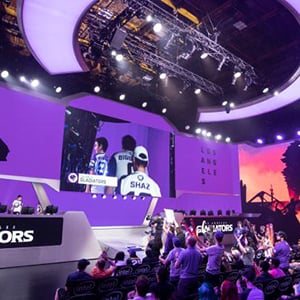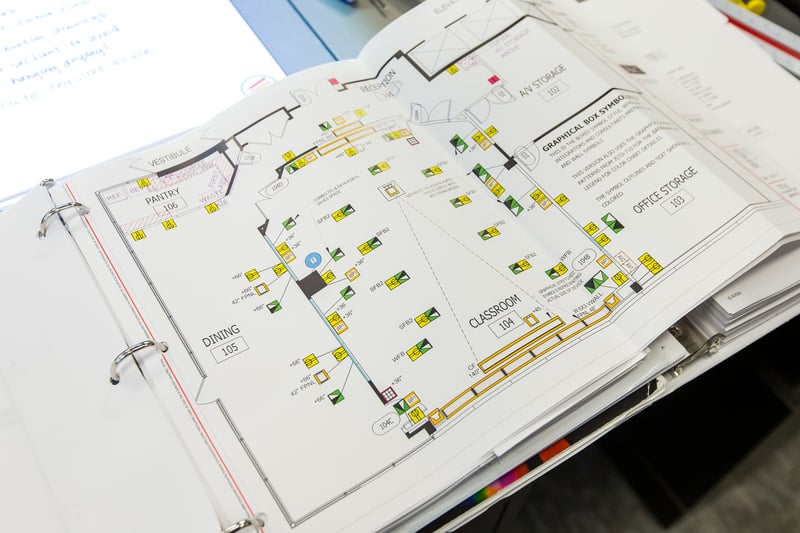AV Designers listen to a customer’s communication needs and translate them into AV systems that achieve their goals. The designer selects the right equipment and designs the AV system(s) which can be as simple as a projector and a screen, or as complex as large networked systems in multiple rooms, multiple buildings or multiple locations around the world. AV Designers often work towards a CTS-D (Certified Technology Specialist - Design) certificate, which is an industry standard of excellence recognized worldwide.
AV Designers draft detailed drawings to communicate plans to clients and team members. They collaborate with allied trades like architects, interior designers, lighting designers, and electricians, to make sure a space meets appropriate construction and safety needs. The same process is needed if a project is for a temporary event. AV designers have to consider many elements in their designs such as power supply, conduits, cooling, frequency interference, IT and network access, acoustics, furniture, window treatments, and lighting. AV Design drawings are used to communicate with everyone on the team and AV Tech installers use them as blueprints for their work.
The AV Designer begins by measuring the space, light, and sound to determine where equipment will go and architectural considerations that influence human viewing, hearing, and comfort. AV designers use several tools to create design documentation, such as:
- CAD drawings, (Computer-Aided Designs)
- 3D models of the space
- Diagrams showing how the equipment fits together
- Signal flows
- Written descriptions of the project
Designers can be independent consultants, or they often work for systems integrator companies.







